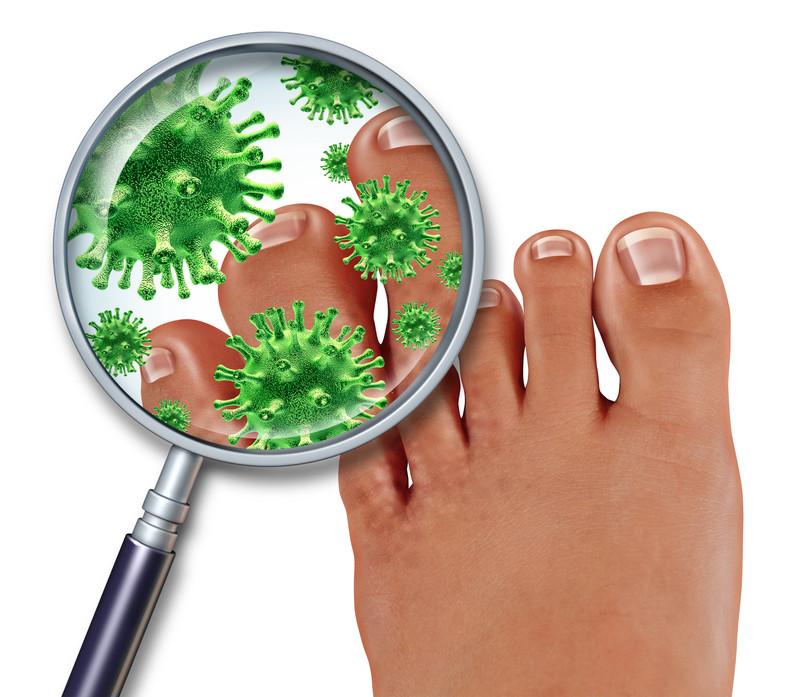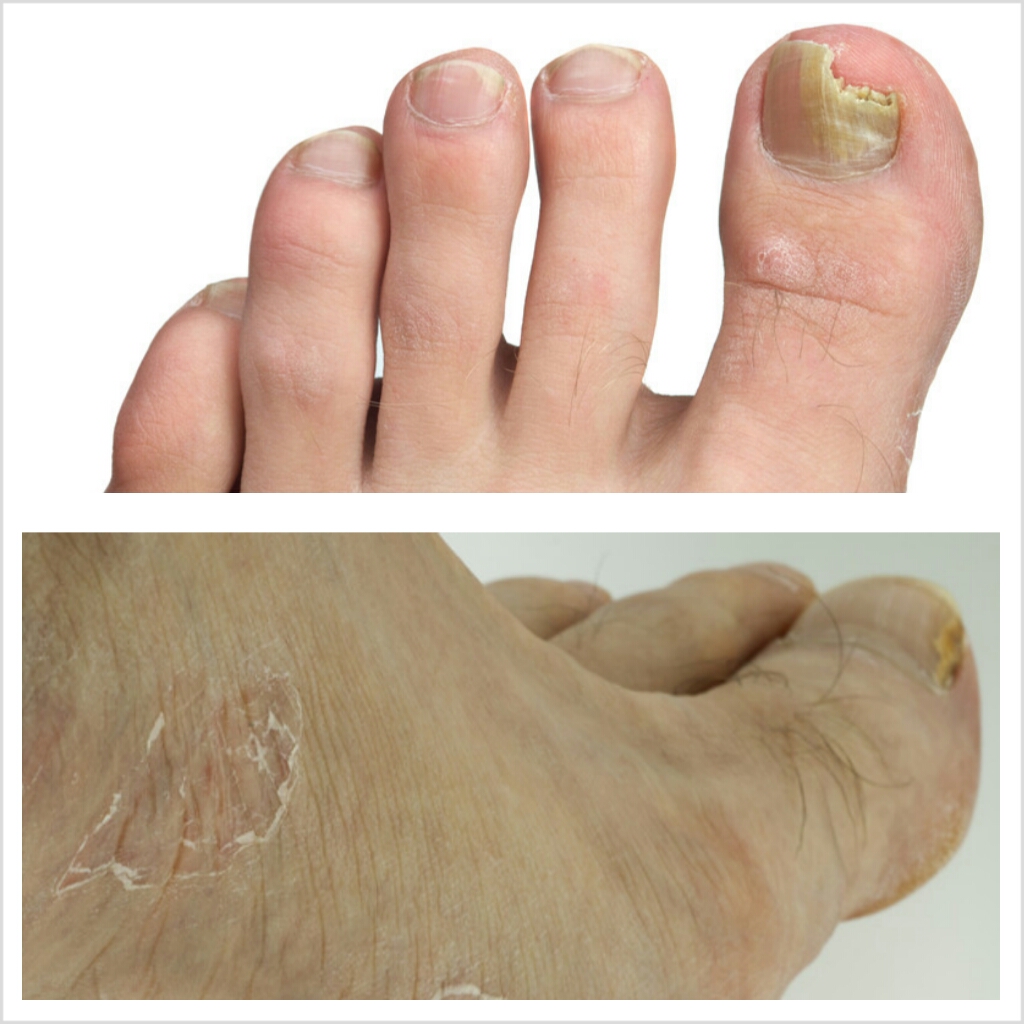| |
Oral Antifungal Drugs
|
 |
|
Fungal infections are caused by fungi that commonly exist in the environment. Infections are usually at superficial layer and often involve the nails, hair and skin. The symptoms of fungal infection depend on the type of infection and location within the body. Common types of fungal infection and associated symptoms are:
|
|
1. Athlete’s foot – which usually affects the skin between toes. There may be symptoms of blisters or peeling off of dry and cracked skin, resulting in strong itchiness at the infected sites. |
|
 |
|
2. Fungal nail infection – which causes the toenails or fingernails to become thickened, discolored, curled, crumbly and sometimes brittle, with pieces of nail breaking off.
|
|
3. Ringworm – which causes a ring-shaped red rash on the skin of the body or scalp.
|
|
4. Vaginal thrush – which causes irritation and swelling of the vagina and vulva.
|
|
|
Invasive fungal infections are less common, but more serious type of fungal infection may result. They are infections that occur deep inside the body’s tissue or in one of the organs, such as brain and lung.
People who are suffering from diabetes mellitus or other diseases associated with weakened immune system will have greater chance of having fungal infections because of their weakened immunity. Besides, people who have poor nutrition and hygiene, experience occlusion of the skin, and live in places with warm, humid climates are some other predisposing factors for fungal infections.
|
|
▲ back to top
|
Most fungal infections can be treated by topical antifungal medications. However, if the infection is very extensive or serious, oral antifungal drugs may be required. Besides, medical treatment is no substitute for good personal hygiene to control the disease and prevent recurrence.
There are many different types of antifungal drugs, targeting at different fungal infections. The choice of antifungal drugs depends on factors such as the type of infection and the medical or drug history of the patient. Therefore, it is of utmost importance that medical advice is sought before using any antifungal drugs.
|
|
▲ back to top
Common used oral antifungal drugs
|

| Majority of the oral antifungal drugs are prescription-only medicines and are available in various dosage forms such as tablets, capsules and suspensions. They should only be used under close supervision by healthcare professionals.
Oral antifungals can be generally classified into three main groups: allylamines, azoles and other antifungals.
Allylamines and azoles kill the fungal cells by different mechanisms of action, such as by affecting a substance in the cell wall, causing the contents of the cell to leak out and so the cell dies. Example of allylamines is terbinafine and examples of azoles include fluconazole, itraconazole and ketoconazole. Other antifungals such as griseofulvin act by preventing the fungal cells from growing and reproducing.
|
|
|
In ideal case, antifungal treatment should be chosen after the infecting organism has been identified, but it is often necessary to start treatment before the pathogen can be cultured and identified, especially in immunocompromised patients in whom infections are often rapidly progressive.
|
|
▲ back to top
Common side effects of oral antifungal drugs
|
|
As with all medicines, oral antifungal drugs have side effects. In most cases, the side effects are mild and only last for a short period of time, but there are rare cases of causing more serious effects.
Common side effects such as:
- Feeling sick
- Nausea
- Abdominal discomfort or pain
- Diarrhea
- Flatulence
- Headache
- Rash
- Indigestion
Oral antifungal drugs can also cause severe reactions such as allergic reaction (swelling of your face, neck or tongue or difficulty in breathing) and severe skin reaction (such as peeling or blistering skin). Besides, in rare cases, liver damage (particularly for ketoconazole and itraconazole) can occur.
|
|
▲ back to top
Precautions of oral antifungal drugs
|
|
Oral antifungal drugs should be avoided or used with caution in patients with liver disease or with history of liver damage with other drugs. You should inform your doctor if any drugs are taking, and be familiar with the signs of liver disorder and seek medical attention immediately if symptoms such as decreased appetite, nausea, vomiting, fatigue, abdominal pain or dark urine develop.
Some oral antifungal drugs should be used with caution in patients with heart or kidney problems. Besides, most of them should be avoided in patients with acute porphyria, which is a genetic disorder that can affect your nervous system or skin or both.
Taking other medications, such as the stomach pill antacid, may interfere with the absorption of oral antifungal drugs. Besides, oral antifungal drugs may alter the effectiveness of other medications such as oestrogens, which are hormones found in some contraceptives and warfarin, which is an anticoagulant.
|
|
▲ back to top
General advice on taking oral antifungal drugs
|
- Complete the recommended course of treatment. Do not stop the treatment too early, otherwise the infection could recur.
- The duration of treatment required may be notoriously long and you need patience and should comply with doctor’s instruction.
- Practice good personal hygiene. Always clean the skin and feet thoroughly when taking a bath.
- Always keep the body dry, such as dry the body completely after bathing, especially between the toes.
|
|
 |
- Wear clean and dry shoes and cotton socks.
- Change socks every day. Wash socks, clothing and towels frequently.
- Avoid wearing tight underwear. Clothes made of cotton are the best choice.
- Never share clothing, shoes, socks or towels and other personal belongings such as combs, nail clippers, hair accessories, hats and pillows with other people.
- Always wash hands after contacting the diseased skin so as to prevent spread of infection.
|
|
▲ back to top
Communication with your doctor
|
- Communicate with your doctor for the best treatment option. Your doctor will prescribe the most appropriate drugs and dosage.
- Some antifungal drugs can interact with other medicines. Inform your doctor of the medicines you are taking, including over-the-counter medicines, so they can decide which an antifungal medicine is safe for you to take.
- Inform your doctor of your medical history, as some diseases may warrant special precautionary measures.
|
|
 |
- Inform your doctor that you are pregnant or breast feeding as most oral antifungal drugs should not be taken by women who are pregnant or breast feeding.
- Seek medical advice immediately if you experience any symptoms or side effects suspected to be related to antifungals.
- Have regular medical follow-ups as advised by your doctor if you need to use antifungals on a long-term basis.
- Seek medical advice if your symptoms worsen or you have any concerns about the medicines you are taking.
|
|
▲ back to top
Storage of oral antifungal drugs
Oral antifungal drugs should be kept in a cool and dry place. Unless specified on the label, medicines should not be stored in refrigerators. Furthermore, drugs should be kept properly in places unreachable by children to prevent accidental ingestion.
|
|
▲ back to top
|
|
Acknowledgement: The Drug Office would like to thank the Professional Development and Quality Assurance (PD&QA) for their valuable contribution to the preparation of this article.
|
|
|
|
|


